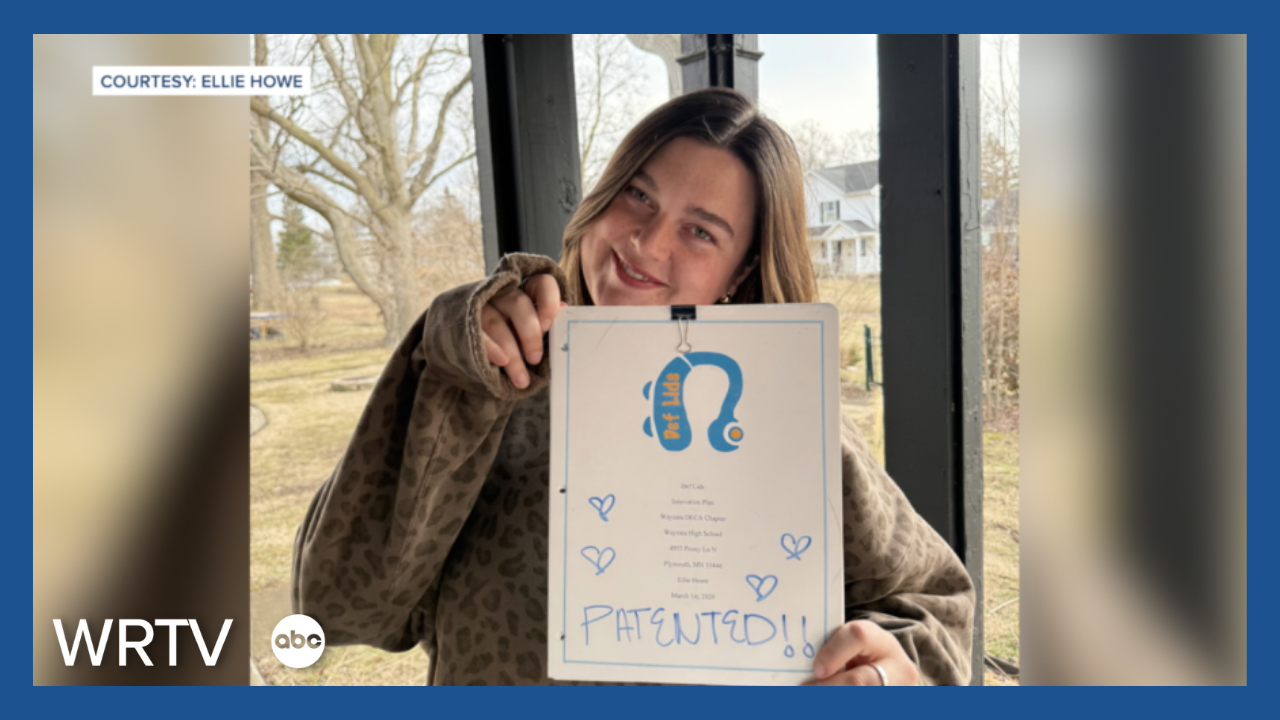BUTLER-TARKINGTON — A recent Butler graduate is helping to change the lives of those who are hearing impaired. It's through a new invention for helmets, designed to protect cochlear implants from getting damaged if hit or moved.
“If you had a child or a parent or a friend who had a cochlear implant, either unilateral or bilateral, you would want them to participate in the activities that they wanted to participate in," Ellie Howe, the founder of Deaf Lids, said.
Ellie Howe always had an eye for business.
“Looking back at my childhood, I did lemonade stands, had a lot of different creative outlets," she said with a laugh. "So I knew I wanted to do something creative within business.”

Being an inventor didn't really cross her mind until what she called a divine intervention.
“I was at the dinner table… and my brother comes in and he’s fumbling with his helmet and he’s like 'I’m just so annoyed. I can’t get this to fit, it’s driving me crazy," Ellie said. "And I thought, ‘oh thats interesting."
Ellie's brother Bart has a cochlear implant. He's had it since he was only 13 years old.
"I've been dealing with this my whole life," Bart exclaimed.
Soon after he got it, he realized that it wasn't really built for physical activities.
“Every time I would snowboard, I would have to take my cochlear implant out" he explained. "I'm a snowboard instructor. So, for these kids, I need to be able to hear them, hear their feedback; what they're telling me and what they're saying.”
The thousands of children and adults who use cochlear implants also face this issue.
"Doctors are actually not officially able to recommend any solution because there's not one," Ellie aid.

That's where she got the idea for Deaf Lids.
It's a modular foam insert for helmets designed to protect cochlear implants from damaging pressure or impact.
"It allows people with cochlear implants and hearing aids to do all the activities anyone would want to do," Ellie said.
While Ellie first thought of this idea when she was growing up with her brother, it didn't really come to life until she started school at Butler University and got help from their innovation lab.
"We had done this for a group project my freshman year, fresh out of the gate," she said. "Then I actually had a few professors say, hey, this is something that we think could be an actual product. Have you thought about it?"
The idea grew from there, and it is now officially patented.

"It was an unbelievable feeling," Ellie said. "It was really cool to then go back to a lot of my contacts in the community and say, hey, we're gonna make this a real thing. Now we have the patent to back it up."
For potential users like Bart, it's a great feeling to know this is on the horizon.
“Just to be able to be safe and to be able to hear your surroundings, it's a really big part of life," Bart exclaimed. "And so I think, in general, it’s super helpful.”
In terms of the future, both Ellie and Bart are excited to see where the product takes them and who it can help.
“You think about skiing, snowboarding, but you think about lacrosse, football, hockey, all those other sports, or even just activities and jobs," Ellie explained. "You need helmets in construction, things like that, so the market, while it's not big, slowly starts to open up with understanding."
“There's been thought to join along. There's also been thought that she should give me 5% of whatever profit she makes just because I was the inspiration," Bart said with a laugh.
Ellie told WRTV she is hoping to license Deaf Lids with a helmet company soon.








